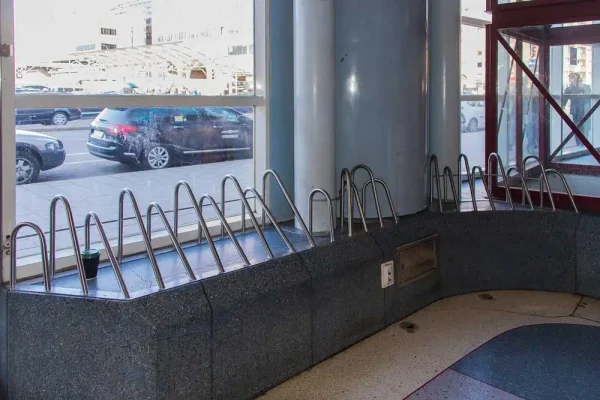Shoplifting mania
Shoplifting took a huge turn recently as peer pressure pushes through teenagers, and people struggle to buy basic necessities due to increased prices. COVID-19 and low minimum wages nationwide influence people to steal in order to buy items they want or need. Companies attempt to create solutions to stop shoplifting before they cannot replace their products anymore.
January 26, 2022
Society overlooks shoplifting as a normal life experience, or a “minor” crime, but fails to realize the way shoplifting negatively affects companies financially. Retailers such as Home Depot and Walmart lost approximately $778,000 per every $1 billion in 2018 due to shoplifting. Shoplifters steal products and damage the economy because society considers shoplifting as a petty crime. Civilians and law enforcement need to stop considering theft as minor, when stealing majorly impacts both customers and producers.
Companies worldwide put cameras throughout their store to scare off shoplifters. If a thief sees their face displayed on a camera, they know they will face consequences. Even though cameras scare off most thieves, cameras only work to identify the thief but do not actually stop them. Companies turned to security sensors typically found on clothing items thinking they would force shoplifters to reconsider stealing their products. The sensors do not come off without the help of an employee, making the item less accessible in a thief’s eyes. Although companies quickly came to the realization that a lock by itself would not always convince shoplifters to avoid theft, the sound of an alarm blaring while they exit would.
Companies also put tags on their more expensive items that will trigger an alarm if not removed or scanned by a store employee. The alarm alerts everyone that somebody stole an item, and all eyes turn to the thief. One would think with video cameras and blaring alarms, shoplifters would not steal, but 11.3% of people admit to shoplifting at least once in their lifetime. With the new technology retail stores use, everyone tends to ask the same question, how do shoplifters manage to escape with stolen items?
“We watch them leave our store with product[s]. Often, they are armed and we don’t want to put our customers or associates in harm’s way,” Carol Tome, Home Depot’s previous chief financial officer said.
Legal punishments do not scare or stop shoplifters because people can shoplift several items without law enforcement stepping in. In Georgia, the law punishes shoplifters who steal under $500 in merchandise within six months with only a misdemeanor. Even though most shoplifters think with an “if it’s a chain, it’s free reign, but never steal from local businesses” mindset to excuse negative behaviors, shoplifters must realize the effects of their actions. Even if some shoplifters steal for a valid reason, they still cause harm to companies and customers.
“At the end of the day, I guess it depends on what specifically is being shoplifted, like say a TV versus food. Items that are shoplifted for survival can probably be considered, due to many people losing jobs, and money being tight because of the pandemic,” Kennesaw State University student and Kroger employee Ally Hicks said.
Retailers understand people need to buy basic necessities, and people making minimum wage cannot always afford to meet their needs resulting in stealing. Shoplifting stems from socioeconomic issues. Perhaps if the government raised the minimum wage, more people could afford the necessities. While retailers agree people deserve food, water and other essentials, customers should not result in shoplifting because it negatively affects their company and customers.
If companies continue to lose money due to excessive shoplifting, then prices will increase, and customers everywhere will suffer. School systems need to implement lessons about shoplifting in middle and highschool, to stunt the amount of shoplifting taking place in today’s society. Parents and educators need to inform children not to shoplift from a young age to put an end to shoplifting indefinitely.
“ I also think people just donating more to places like the Salvation Army, or volunteering with organizations designed to give back to the community can help reduce shoplifting for at least basic needs. If it came to more frivolous stuff like electronics and more costly items, I feel like just having stores carefully observe when store alarms go off and checking receipts and actively looking at cameras can help reduce overall thievery,” Hicks said.


















